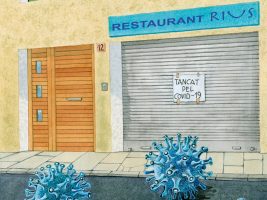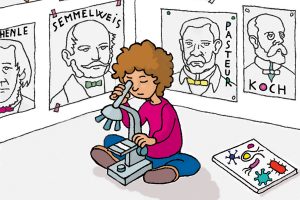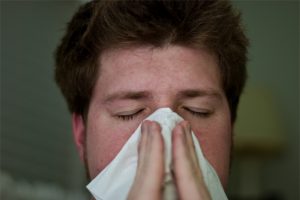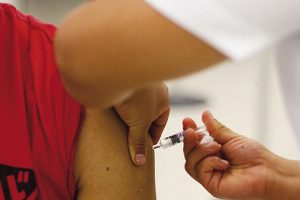Search
Most probably, the current coronavirus1 pandemic represents the uncertain epilogue of an epidemiological period marked by the renewed prominence of the infectious disease in the last decades of the twentieth century
The threat of infectious diseases has been constant in the history of humankind. 75 % of new emerging human infectious diseases in the last thirty years have an animal origin, and 17 % are transmitted by a vector.
By giving away our DNA and genetic data, we are giving away the DNA and genetic data of our entire biological family. We have to think if the objective we are pursuing is worthwhile.
The miasmas – a frightening name concealing a solid lack of knowledge – were supposed vapours carrying particles of «corrupted matter» that caused infectious diseases.
L’al·lèrgia és una patologia clínica que pateixen alguns individus i que es desenvolupen front a molècules inofensives (és a dir, que no són tòxiques ni infeccioses) anomenades al·lèrgens. L’al·lergen provoca una resposta immunitària de l’organisme, que és l’autèntica causant dels danys i la simptomatologia de l’al·lèrgia.
The new Mètode monograph, Narrating health, shows the different ways in which the literature connects medicine and health.
Literature and medicine are closely connected. Many works that portray experiences of disease have been set in health care facilities, including sanatoriums. Anti-tuberculosis sanatoriums, seen as spaces of isolation and as «death row» have inspired many authors. Twentieth-century novels devoted significant attention to these institutions which, kept far from the rest of society, conditioned both the life and the identity of the sick.
A critical review of Woolf's literary legacy allows us to get closer to what might be one of the most intense literary portrayals of illness and its metaphors and, at the same time, to the representations, euphemisms, silences, and monsters depicted in the chapters of her life and in the unique voice of this essential author.
Experimental determination or detection of the physiological mechanisms underlying disease is by and large a highly complex task. This fact has turned epidemiology into the main tool for generating knowledge in the medical field.
From the perspective of public health intervention, there is no better weapon than one which can prevent disease transmission or onset. Within the field of infectious diseases, vaccines have become the weapon that can control many of them.










